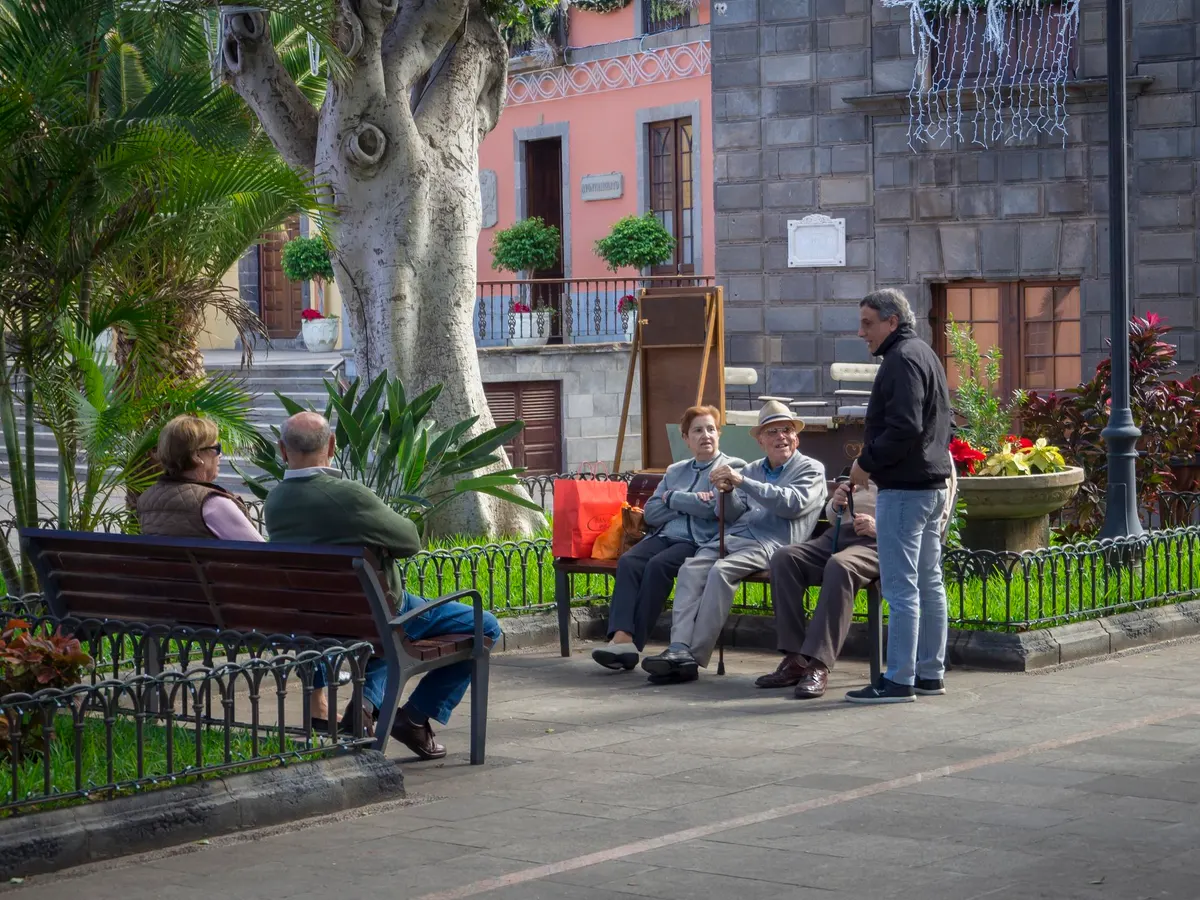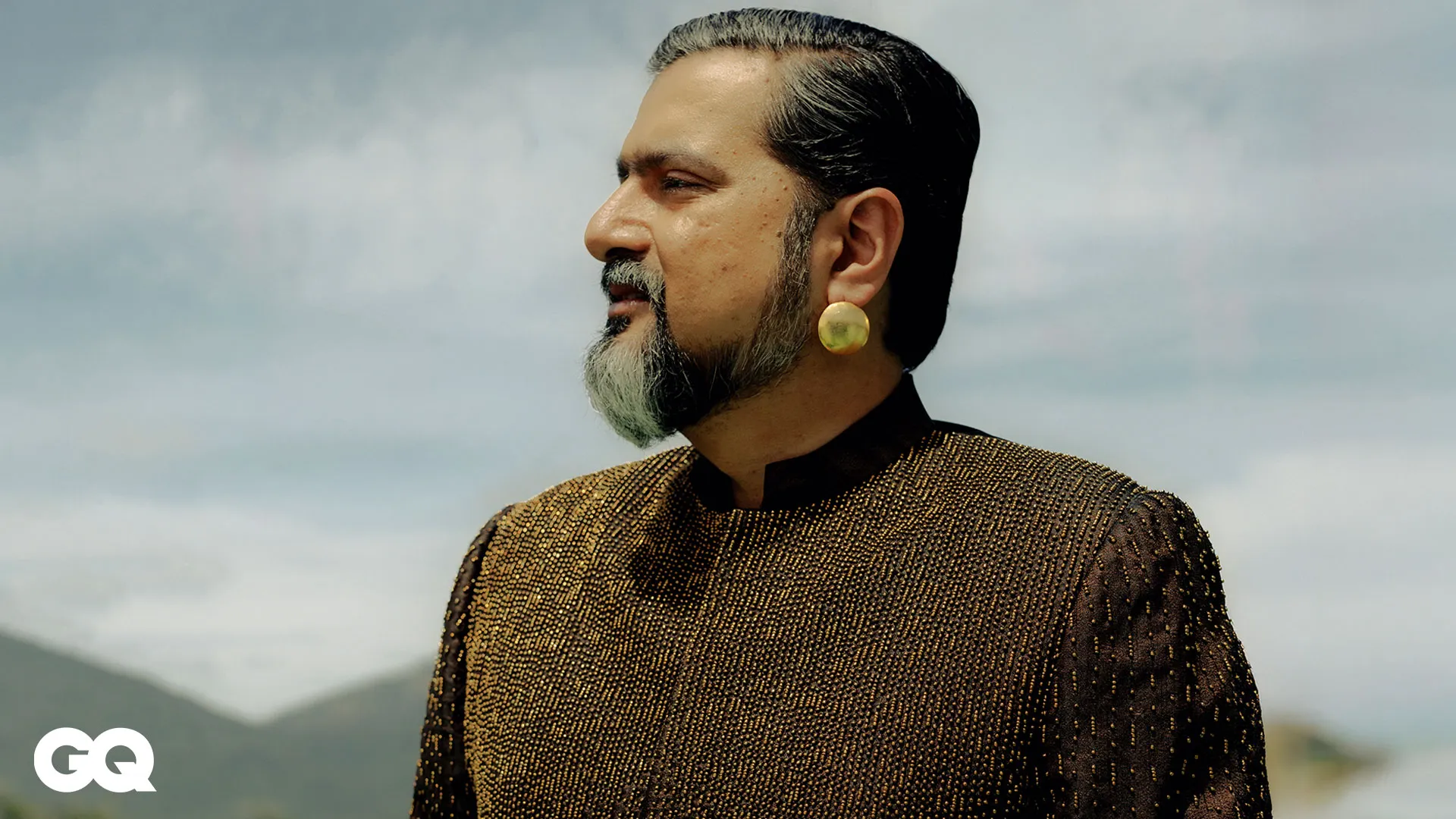Copyright forbes

Senior locals talking and taking in fresh air in the evening in a public park in Garachico, Spain. For real estate associate Laura Barrera, who grew up in the coastal region of Galicia in northwest Spain, one of the most comforting phrases from childhood was “vete a tomar un poco el fresco,” which means “go take some fresh air.” “For babies, kids, adults, and grandparents, it was the solution to absolutely everything. If you’re stressed, sick, or not feeling like yourself, a loved one or friend would tell you—vete a tomar un poco el fresco. Like, you cannot get better without it,” Barrera tells me. In small towns and villages throughout Spain, you’d still find people sitting outside on chairs, stools, or benches in the evenings as they take in fresh air. The grownups talk, conversation flowing from local gossip and the weather to harvest and soccer, punctuated by laughter. Kids run around or climb trees, while moms stroll their babies, and grandparents sit there taking it all in. “It doesn't matter if it's cold or hot,” says Barrera. Even rain doesn’t put a damper on it. Clara Wooller, a 45-year-old native of Cantabria in northern Spain, shares, “Despite our very rainy climate, my family has always gathered outdoors for walks, barbecues, card games, watching shooting stars—whether at our casitas in the country or at the beach.” Known across Spain as ‘tomar el fresco,’ which literally means ‘taking the fresh air,’ the practice has been cherished for generations. And experts say we could all benefit from it. According to clinical psychologist Dr. Katie Carhart, traditions like ‘tomar el fresco’ are powerful because they combine several factors shown to improve mental and physical health. For example, spending time outdoors, connecting with others, and mindfulness. “Research shows that each of these individually can have positive effects, and so stacking them together can amplify the impact,” she notes. Plus, it doesn’t take a lot of time to notice the payoff. “Ten to twenty minutes is enough to get the ‘feel-good’ brain chemicals like serotonin and dopamine flowing, says Dr. Carhart. Why Tomar El Fresco Is Good For You Here are five ways this age-old practice can benefit your mind and body, according to experts: It Lowers Stress And Improves Mood The combination of fresh air, time outdoors, and relaxed conversation cues the parasympathetic nervous system, lowering stress and anxiety. “Think of it as an off-switch for the day’s adrenaline—your heart rate settles, shoulders drop, and the mind stops sprinting,” says Dr. Andrea Gleim, psychologist and founder of Mindfully Mine Counseling Center. Moreover, breathing fresh air increases oxygen flow to the brain, which helps improve mood, focus, and energy. It Teaches You To Embrace Stillness We’re living in the age of overstimulation, and as soon as that stimulation starts to fade, we feel uncomfortable. Traditions like tomar el fresco encourage us to slow down and get comfortable with stillness instead of reaching for our phones or other distractions the moment we feel bored, says Osly Galobardi, a Hispanic licensed therapist. This, in turn, promotes calm and reduces cognitive overload. It Can Help Fight Loneliness “Rituals like tomar el fresco combat loneliness through what I call ‘proximity-based bonding’. Meaning, casual socializing that doesn’t involve emotional labor or performance, but provides a context for simply being together and connecting as human beings,” says Melissa Gallagher, licensed clinical social worker and executive director at Victory Bay. While formal social activities like networking events or dinner parties can alienate more socially anxious folks, informal, unstructured socializing, such as the kind we see in tomar el fresco, offers a chance to build genuine relationships without pressure or pretense, she explains. It May Improve Sleep Unlike the blue light from our screens, exposure to fading natural light in the evenings supports the circadian rhythm. It signals the brain it’s time to slow down and get ready for rest, which helps regulate melatonin release and improve sleep quality, says Allison Briggs, a Houston-based EMDR therapist. It Supports Longevity And Healthy Aging Taking in fresh, cooler air after the day’s heat activates the body’s natural recovery processes. For example, your circulation improves, mitochondrial efficiency increases, and cells are better primed for renewal, notes Dr. Arvind Chakravarthy, chief longevity officer at Beverly Hills Rejuvenation Center. Cooling the body also helps reduce inflammation, a key driver of aging and chronic disease. Meanwhile, meaningful social connections increase oxytocin—the “bonding hormone”—which has been linked to cardiovascular protection, cognitive health, and emotional resilience,” adds Dr. Chakravarthy. How To Practice Tomar El Fresco In Your Life Ready to give it a try? Here are three simple and accessible ways to incorporate tomar el fresco into your daily routine: Find your perfect spot: Look for green spaces nearby, like a park or community garden, where you can relax for a while every evening. If not possible, sitting on your porch, stoop, or balcony, or in the backyard after dinner works too. If you’re alone, bring a book or enjoy a cup of tea while noticing all the sights, smells, and sounds around you as mindfulness cues. Gleim suggests leaving your phone inside or putting it on do not disturb. Crack open a window: For those unable to step outside every evening, Briggs suggests sitting near an open window for ten to fifteen minutes of fresh air (away from your phone) to reap similar benefits. Place some indoor plants near the window to add a touch of green. Make it a family ritual: Dr. Carhart suggests sharing a meal outside once a week. You can also take a short walk together after dinner. “Make it a 10-minute ritual—kids can bike, adults stroll, everyone decompresses,” says Dr. Gleim. Keep in mind that consistency matters more than the setting, says Briggs. Even if it’s only ten minutes a day, your well-being will thank you for it! Editorial StandardsReprints & Permissions



